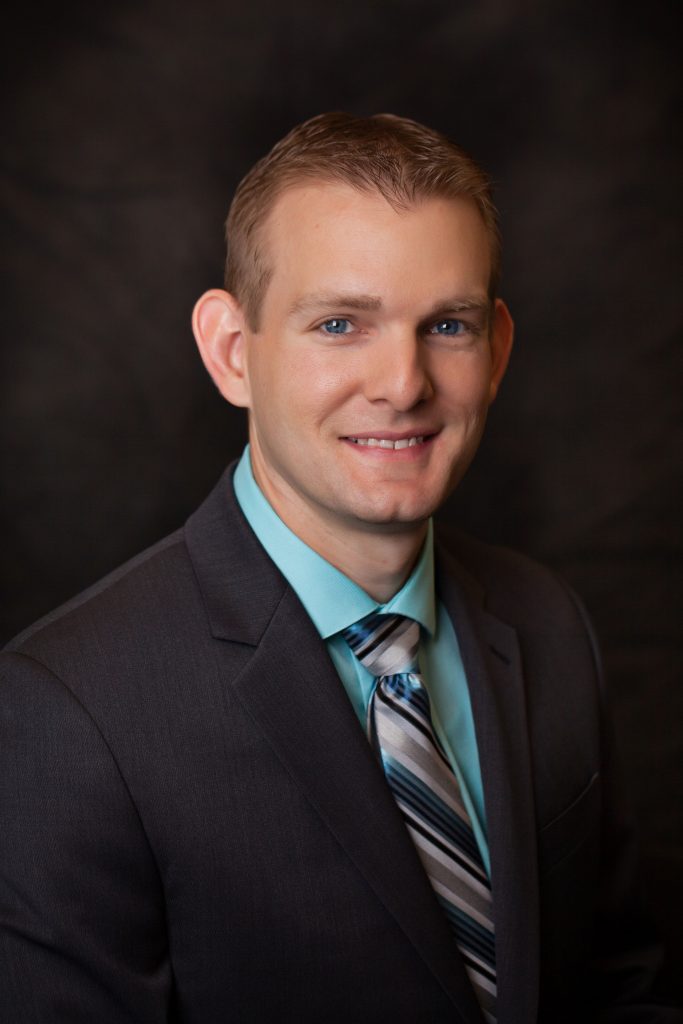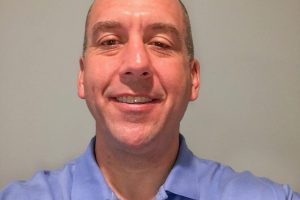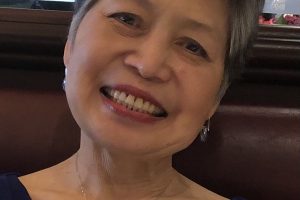
WHAT IS YOUR PRACTICE AREA AND/OR AREA OF EXPERTISE?
Health/Medicaid
WHAT LED YOU TO BECOME AN ACTUARY? AND WHAT ATTRACTED YOU TO THE PROFESSION?
Discovering the actuarial profession was a happy accident in my case. I was freshman in college, double-majoring in journalism and political science, and decided to take calculus because I enjoyed math. As luck would have it, that class was taught by a professor in Ball State University’s Actuarial Science Program. Over the course of that year, I realized that actuarial science was a way for me to make a career out of something I was both good at and passionate about.
A chance encounter with the Mercer representative at a career fair I attended just prior to the start of what would have been my fourth semester as a Ph.D. mathematics candidate resulted in me landing a job as an entry-level actuarial analyst. Over the course of the ensuing 19 years, I’ve worked in just about every role in the actuarial arm of Mercer’s Medicaid consulting practice.
I discovered very quickly that the actuarial project work that exists in health care consulting is very dynamic and that I would have opportunities to move across a wide variety of roles on the project teams I was assigned to, which was very appealing to me as an aspiring actuary. They have also been significant factors in my desire to stay at Mercer over the long term.
DESCRIBE A TIME WHEN YOUR PROFESSIONALISM TRAINING HAS HEALPED YOU IN YOUR CAREER.
I have found my professionalism training to be most useful when I need to have a difficult conversation with a client or third-party stakeholder. Having a firm grasp on what my professional responsibilities require of me in these situations and what the consequences for failing to adhere to those requirements guides me when I’m formulating a strategy for these conversations. Likewise, ensuring that I have a robust understanding where flexibility does or does not exist helps me navigate many of the questions that come up throughout the conversation itself.
While I still don’t enjoy having difficult conversations with clients or third-party stakeholders when the need arises, I have developed this into a strength over the course of my career. I owe a large amount of the credit for this to the professionalism trainings I’ve attended over the years, as well as the discussions I’ve had with many of my more experienced colleagues about issues related to the Code of Professional Conduct and actuarial standards of practice.
TELL US ABOUT A TIME WHEN YOUR ACTUARIAL EXPERTISE INFLUENCED AN IMPORTANT DECISION IN YOUR WORKPLACE.
Although none of my formal actuarial training was designed to prepare me for the various roles I have taken on in managing large, complex engagements, I have repeatedly found that my actuarial problem-solving and critical-thinking skills are just as applicable to a host of the non-actuarial challenges I’ve been tasked with tackling. From building and managing budgets and timelines, to forecasting revenue and expenses, to devising a strategy for responding to requests for proposals, the skills and knowledge I’ve acquired through my actuarial training and work experience have proved to be sufficiently versatile that I have been able to rely on them to solve these business problems and more. Once I recognized and embraced the idea that my actuarial expertise could be adapted to this new role, it gave me the confidence that I needed to make the jump from primarily actuarial roles into a role as an engagement manager. This decision unlocked a new set of opportunities for professional growth and development and was a critical step in helping me realize my full potential as an actuarial consultant.
WHAT’S ONE OF THE BIGGEST LESSONS YOU’VE LEARNED IN YOUR CAREER?
As Ted Lasso famously said, “be curious, not judgmental.” Asking questions is, in my opinion, the best way to accelerate your understanding of a topic and grow as a professional. You may need to be thoughtful and strategic about who you’re asking your questions to or when you’re asking them, but making sure that you actually do ask questions when you have them is an incredibly effective way to acquire institutional knowledge about a client or project from more experienced team members. By increasing your understanding of the context within which the projects you’re assigned to exist, you will inevitably find yourself better positioned to be able to add value to your project teams on a consistent basis. Additionally, you can turbocharge this growth and development by attaching yourself to projects, teams, or organizations where you are surrounded by as many intelligent people as possible.
WHAT ADVICE DO YOU WISH WERE GIVEN AT THE BEGINNING OF YOUR CAREER?
Having a plan for your career is important, but it’s at least as important to have flexibility in your plan. Over the course of my career, the best and most interesting opportunities have tended to be ones that popped up unexpectedly, as opposed to those that I could see coming ahead of time. It took me longer than I would have liked to realize that the keys to being able to take advantage of such opportunities without overcommitting (and ultimately overworking) myself are: 1.) to always be mindful about training and developing others on my team to be able to take on additional responsibilities when called upon; and 2.) being disciplined about delegating or handing off some of my existing responsibilities when I volunteer to jump into something new, different, and exciting. These skills take time and practice to master, but they are worthwhile investments in your long-term success and happiness in the actuarial profession.
WHAT DO YOU VALUE MOST ABOUT YOUR ACADEMY MEMBERSHIP OR ACADEMY VOLUNTEER WORK?
The opportunities created by my volunteer work with the Academy are easily what I value most about my membership. Volunteering provides me with an opportunity to hear new and different viewpoints on issues I’m already familiar with as well as gain a better understanding of how issues in other market segments relate issues that I’m focused on day-to-day. Over time, this has definitely made me a better actuary and consultant.
WOULD YOU LIKE TO SHARE ANYTHING ELSE WITH ASPIRING OR NEW ACTUARIES, OR THOSE INTERESTED IN VOLUNTEERING FOR THE ACADEMY?
Volunteering with the Academy is probably going to be outside of your comfort zone initially—and that’s totally fine! I would encourage you to start with small steps. Raise your hand for a committee that you already know something about, that aligns with your interests, or that someone you know is already a part of. Make a commitment to simply attend committee meetings for your first year. Eventually, you’ll get to know many of the regular attendees and acclimate to the meeting flow and expectations. Before you know it, you’ll find that you have a viewpoint to offer on a topic that is being discussed, and you’ll find it becomes progressively easier to contribute to the group over time. I trust that you will find volunteering for the Academy is both a rewarding experience and a great way to increase your value in the marketplace.
BEYOND WORK—WHAT ARE SOME OF YOUR HOBBIES OR OTHER PERSONAL INTERESTS?
As a father of two very energetic children ages 6 and 4, my wife and I spend the majority of our free time dividing and conquering activities including baseball, gymnastics, swimming, and Lego building. I am also a dyed-in-the-wool Buffalo Bills fan and I have been an avid CrossFitter for the past 10 years. I recently became a CrossFit Level 2 Trainer, because a commitment to lifetime learning means more than completing my 30 hours of actuarial continuing education every year.
My wife and I also love to travel, and we are looking forward to the opportunity to add more stamps to our passports in the near future as our kids become old enough that international travel feels manageable again.




